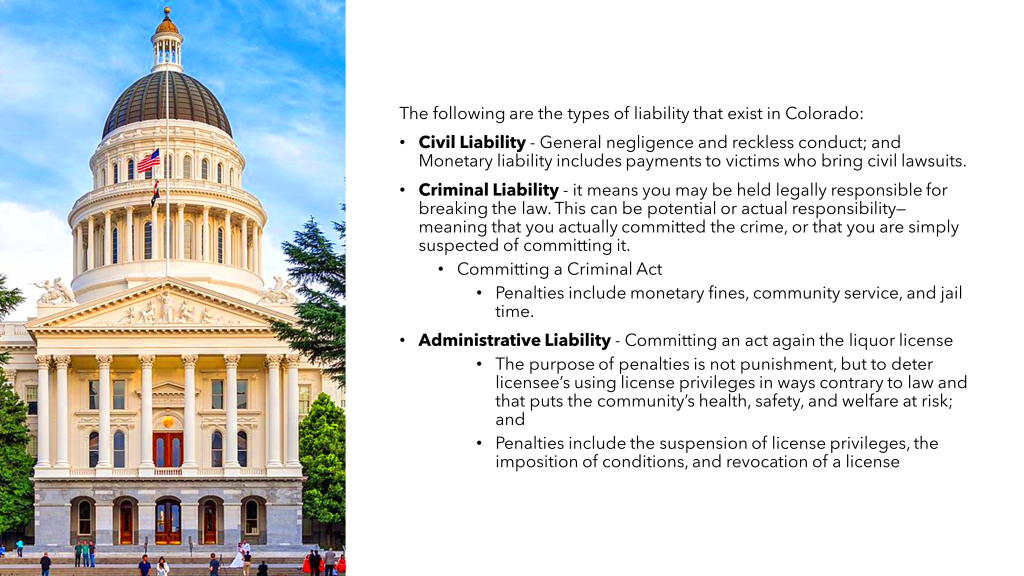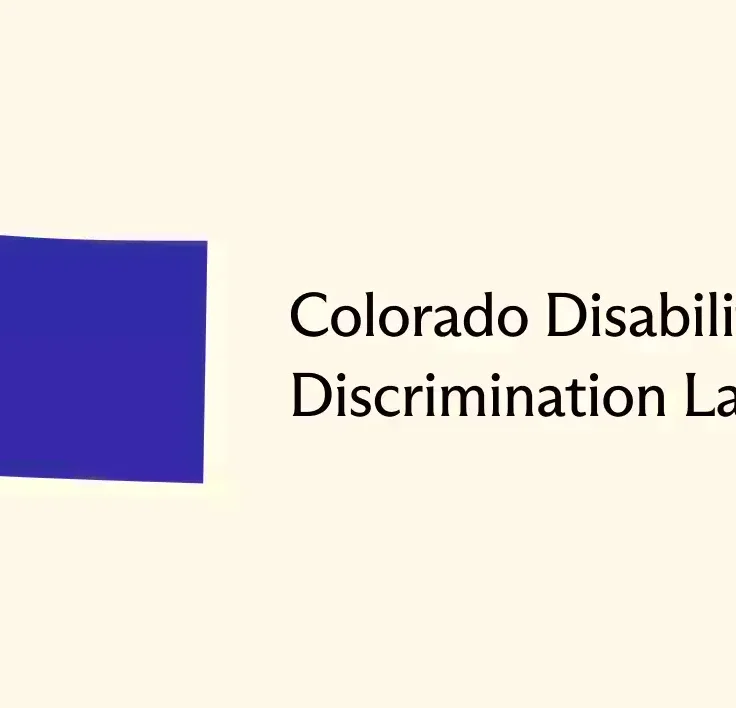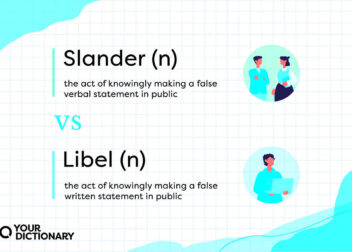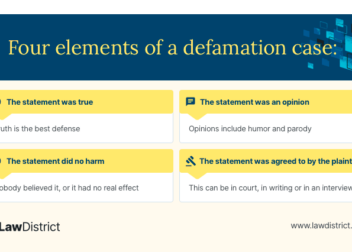Colorado’s Slander Liability Laws Explained
Slander is a serious topic that has numerous ramifications for both the accuser and those whom it is directed. Anyone who could find themselves in a possible slander situation must comprehend what slander is and its legal implications in Colorado. This applies to individuals, companies and professionals fretting about their reputations or legal stature. Therefore, let us take a closer look at slander, including its meaning within the frame work of Colorado’s laws.
The Legal Definition of Slander

Slander is characterized as the act of making an untrue oral statement that harms one’s reputation. This is because in Colorado slander falls under defamation, which includes libel (the written word). For a statement to be slanderous, it has to fulfill certain conditions:
- Falsehood: The statement must be untrue.
- Spoken Statement: The statement must be communicated verbally to a third party.
- Harmful Intent: The speaker must have intended to harm the reputation of the person.
There are many confusing things about slander, but here we will try our best to shed some light on them. If you have ever experienced it or know someone who has, then you know that slander can cause serious emotional injuries and even other damages. In order to avoid being caught up in such complex legal waters; therefore, a proper definition and knowledge of slander definitions is important for you if at all you are going through this tough times in your life.
Elements of a Slander Claim
For a successful slander suit in Colorado, there are four main things a plaintiff has to show:
- Statement of Fact: The plaintiff must show that a statement was made that can be classified as a fact, not merely an opinion.
- Falsity: The plaintiff must demonstrate that the statement is false. Truth is a complete defense to slander.
- Publication: The statement must have been communicated to at least one person other than the plaintiff.
- Damages: The plaintiff must show that the false statement caused harm, such as loss of reputation, emotional distress, or financial loss.
Anyone wanting to pursue a defamation lawsuit in Colorado must establish these ingredients. All of the elements must be substantiated so as to win the case and collecting the proper evidence can radically change its fate.
Defenses Against Slander Claims
In Colorado, if someone faces a slander lawsuit, he or she can always refer to multiple ways in which he or she may defend himself or herself. Consequently, it’s necessary to understand these arguments, particularly if you are accused of making defaming statements. Some of the standardnaires used as a defense against defamation claims include:
- Truth: If the statement made is true, it serves as an absolute defense against slander. Truth is a strong shield in any defamation case.
- Opinion: Statements that are purely opinion and not presented as facts cannot be classified as slander. For example, saying “I think he’s a terrible singer” is an opinion, not a factual statement.
- Consent: If the person who is allegedly slandered consented to the statement being made, it cannot be deemed slanderous.
- Privilege: Certain statements made in specific contexts, such as in court or during legislative sessions, may be protected by a legal privilege, shielding the speaker from slander claims.
- Public Figure Defense: If the person being defamed is a public figure, they must prove “actual malice,” meaning the statement was made with knowledge of its falsity or with reckless disregard for the truth.
Being aware of these defenses could aid individuals in going through slander claims and thus avert the repercussions of a lawsuit.
Filing a Slander Lawsuit in Colorado
Should you think that you have been a victim off slander, then consider filing a suit case. In Colorado, there are certain actions to take when commencing a slander action against someone.
- Gather Evidence: Collect all relevant information, including witness statements, recordings, or documents that support your claim.
- Consult an Attorney: Seeking legal advice from an attorney experienced in defamation law is crucial. They can guide you through the process and help strengthen your case.
- File a Complaint: Prepare and file a legal complaint in the appropriate court. This document outlines your claims and the damages you seek.
- Serve the Defendant: Once your complaint is filed, you must formally notify the defendant, usually through a process server.
- Proceed with Litigation: Be prepared for court proceedings, which may include depositions, discovery, and trial if the case does not settle.
These steps will help you properly file your lawsuit and increase its odds of success. It’s important to note that because Colorado has a statute of limitations regarding filing defamation claims, it is vital to act promptly.
The Role of Damages in Slander Cases
Critical to slander suits are damages that influence the monetary award payable to a successful plaintiff. Colorado divides these injuries into various categories:
| Type of Damages | Description |
|---|---|
| General Damages | These are damages for harm to reputation and emotional distress that do not require specific proof of monetary loss. |
| Special Damages | These damages must be specifically proven and can include lost wages, business opportunities, and other financial losses resulting from the slander. |
| Punitive Damages | In cases of egregious or malicious conduct, the court may award punitive damages intended to punish the wrongdoer and deter similar behavior in the future. |
Everybody who is thinking about a lawsuit for slander should know about the function of damages as it affects the possible conclusion and plans on how to present the case in an efficient manner. Do not forget that sometimes compensation is all you need in order to win your case.
Important Case Law Influencing Slander Liability
Slander liability in Colorado is greatly influenced by case law. Landmark decisions have established important precedents that shape contemporary understandings of slander law. Below are some essential cases:
- New York Times Co. v. Sullivan (1964): Although not a Colorado case, this Supreme Court ruling established the “actual malice” standard for public figures in defamation cases. This case emphasized the need for proof that the defendant knew the statement was false or acted with reckless disregard for the truth.
- Heilman v. Ainsworth (2004): In this Colorado case, the court examined the elements of defamation, reinforcing that a false statement made about a person that causes damage can lead to liability. This case clarified how courts evaluate the context and intent behind statements.
- Booth v. State (2008): This case involved a defamation claim brought against a state employee. The court ruled on issues of governmental immunity and the protections available for public officials, impacting how similar cases are approached in Colorado.
For instance, this follows for example of slander actions that are assessed by the courts as well as the need to understand both federal and state legal requirements. Anyone who is dealing with slander problems in Colorado can take advantage of these decisions.
Frequently Asked Questions about Slander in Colorado
Whenever individuals get drawn into prospective cases, they are likely to have questions regarding slander. Here are some frequent questions and answers that explain major aspects of slander in the state of Colorado:
| Question | Answer |
|---|---|
| What is the time limit for filing a slander lawsuit? | The statute of limitations for filing a slander lawsuit in Colorado is typically one year from the date of the slanderous statement. |
| Can I sue for slander if I’m a public figure? | Yes, but you will need to prove actual malice, which means showing that the statement was made with knowledge of its falsity or with reckless disregard for the truth. |
| Is an apology a defense against slander? | While an apology may help mitigate damages, it does not serve as a legal defense against a slander claim. |
If you’re part of a defamation action, these frequently asked questions can explain what to expect. Consulting a lawyer is possible for additional inquiries.
Conclusion on Colorado’s Slander Liability Laws
Ultimately, it is important for individuals and businesses alike to understand the slander liability laws in Colorado. This is because slander can have serious emotional as well as monetary consequences thus one must be aware of their rights and options available. If you are facing, or thinking about bringing, a slander action then recall what elements, defenses and precedential cases apply. Legal advice should always be sought from professionals who understand your unique situation best. By being knowledgeable and taking action when necessary one is able to wade through the murky waters posed by defamation thus safeguarding one’s name as required.


